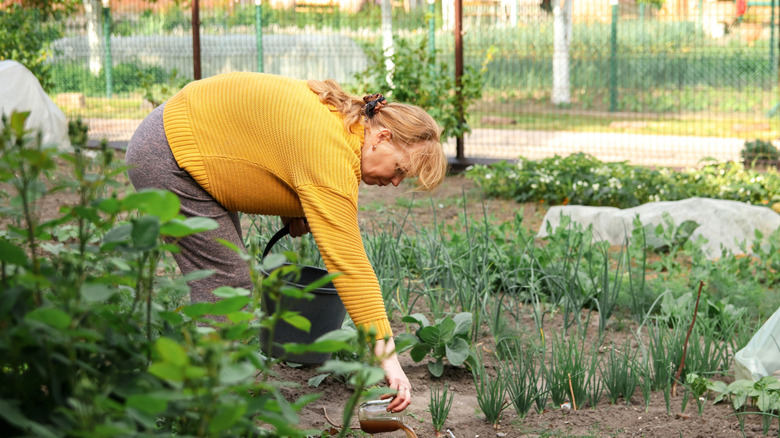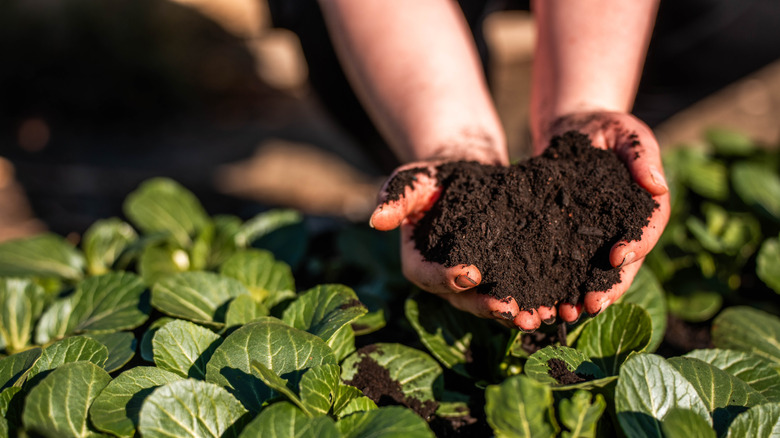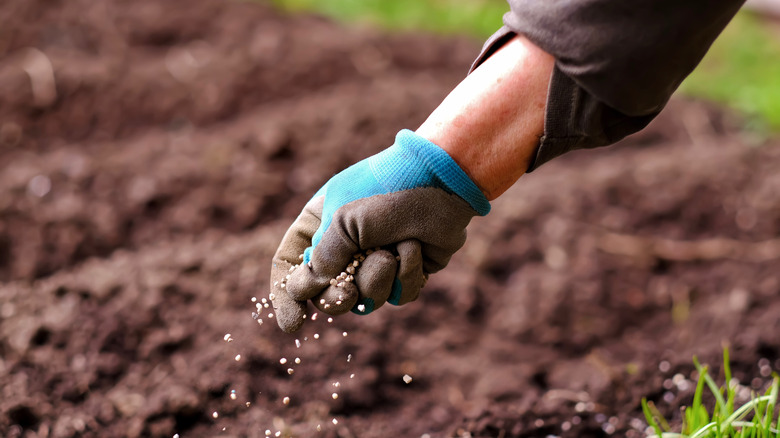Although Regenerative Fertilizer Touts A Lot Of Benefits, Is It Really Worth Buying?
Walk into any farm supply store and you'll see shelves lined with fertilizers promising faster growth and greener crops. It's tempting to grab the one that promises the quickest results. But oftentimes that quick payoff comes at a cost to your soil. Regenerative fertilizer takes a different approach. Instead of offering a short-term boost, it nourishes plants while gradually rebuilding the soil itself with compost, cover crops, and manures. And yes, if you care about long-term soil health and sustainable productivity, regenerative fertilizer is definitely worth buying.
You can think of it less as a trendy alternative and more as a practical investment to improve the foundation of your soil. By feeding the soil as well as the crops, regenerative fertilizer sets up your landscape or your backyard garden, for healthier harvests season after season. Here's why this underrated fertilizer might be the secret to a thriving garden.
Benefits that set regenerative fertilizer apart
Regenerative fertilizers tend to be gentler on your soil because they're naturally lower in salts. That might not sound like a big deal, but it matters. Too much salt can stress plants, stunt their growth, and even burn roots. By keeping the salt index low, it helps your crops thrive while reducing nutrient wastage. If you're looking for a way to enrich the soil in your garden naturally, regenerative fertilizer can be a game-changer. As your soil health improves, you'll likely need fewer chemical inputs, like synthetic fertilizers, to keep your garden beds productive.
Healthy soil works harder for you, storing nutrients better and supporting richer plant life. But the ripple effects don't stop there. Regenerative fertilizers can increase biomass in the soil, which improves fertility and helps prevent long-term soil degradation. By reducing heavy pesticide use and rotating crops more often, you can welcome more pollinators. Once your soil is healthier, it holds water better, which means less irrigation is needed. Plus, healthy soils can lock in carbon and help crops withstand droughts, floods, and other climate shocks.
Is regenerative fertilizer really worth buying?
Regenerative fertilizers help restore the soil itself. That makes them different from synthetic fertilizers, which often give quick results but can degrade soil health over time. In fact, many people have learned the hard way after relying on the popular fertilizer you need to avoid. One of the most compelling arguments for regenerative fertilizer is its ability to lower costs in the long run. As the soil gets healthier, it holds water better, needs fewer chemical inputs, and becomes more resilient against droughts or heavy rains. But there's a tradeoff at the start.
When you first start using regenerative gardening methods, your plants might take a little time to adjust. The soil needs a chance to rebuild its organic matter and get those beneficial microbes working again. Once your soil comes back to life, you'll start seeing stronger plants that often produce more over time. Healthy soil also holds onto moisture longer, so you won't need to water as often. And the best part is that plants grown in rich soil usually taste better, stay fresher longer, and are packed with nutrients. It takes a bit of effort upfront, but think of it as investing in a garden that rewards you year after year.


